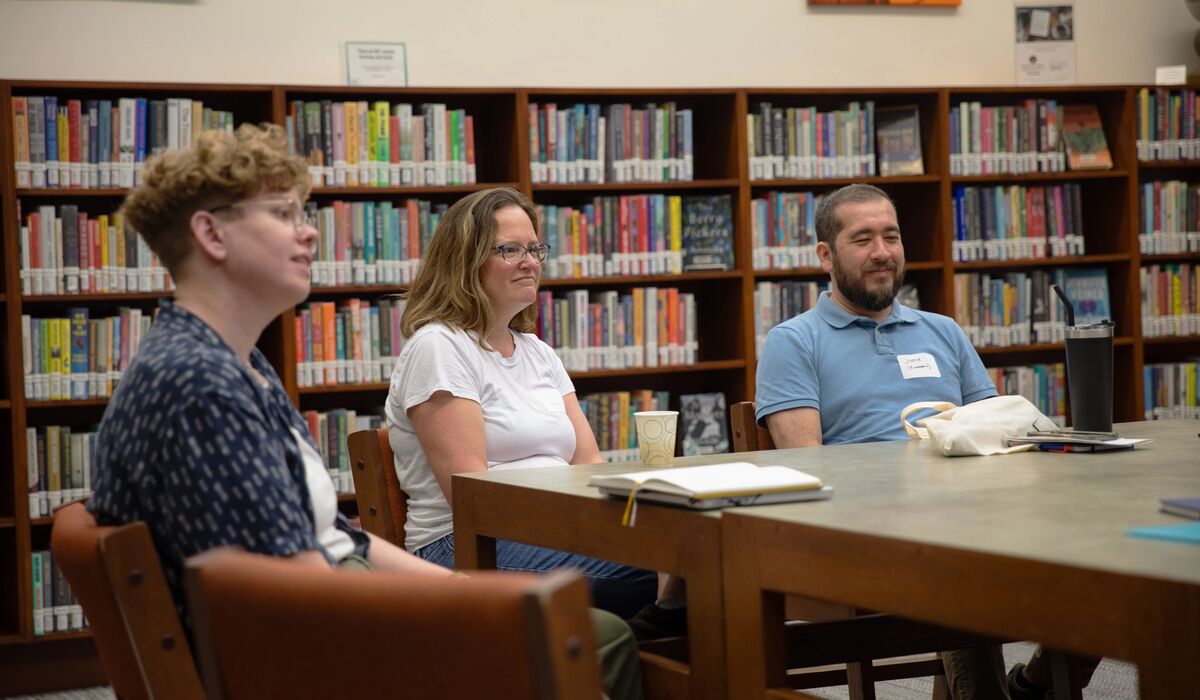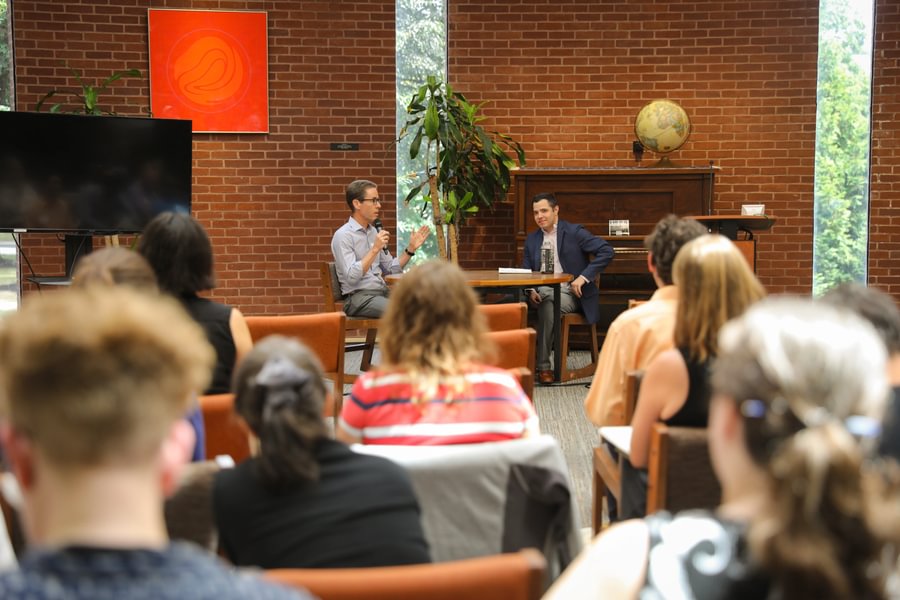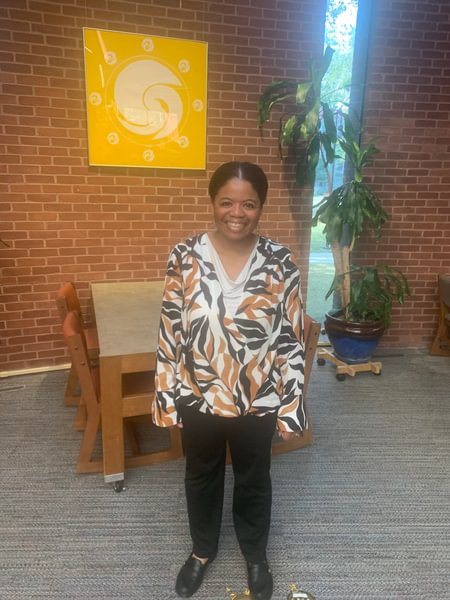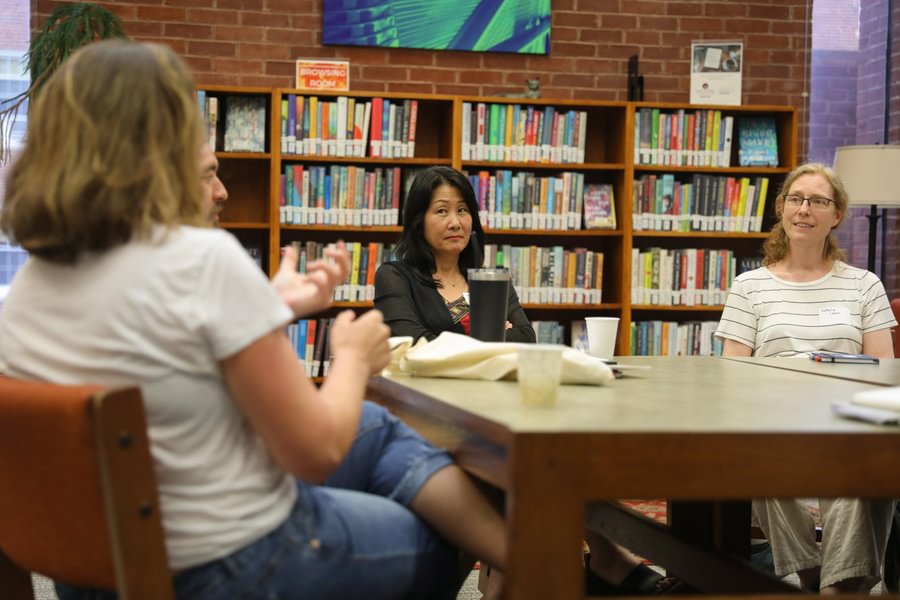
Renewing their commitment to supporting students through collaboration, more than 70 Gettysburg College faculty and staff participated in the annual Summer Pedagogy Institute (SPI) Aug. 13-14 at Musselman Library. Led by the Johnson Center for Creative Teaching and Learning (JCCTL), this year’s program encouraged participants to share ideas and explore strategies among the following areas:
- The impact of generative AI
- The advancement of inclusive teaching
- The integration of curricular and co-curricular activities
- The implementation of Gettysburg’s new curriculum, which takes effect this fall

Launching the SPI, Garrett Goodwin ’21, senior regulatory affairs associate at Pfizer, joined Psychology Prof. Richard Russell to discuss the connections between a Gettysburg liberal arts and sciences education and students’ future careers amid AI’s continued evolution. Goodwin—who double majored in political science and public policy—referenced examples from his work as evidence that AI is a must-have skill for college graduates.
“The Institute itself is a collaborative endeavor. The thoughtful contributions of my colleagues exemplified the spirit of collaboration.”
–East Asian Studies Prof. and JCCTL Director Junjie Luo
Attendees then organized into roundtables to explore AI in their teaching within the arts and humanities, social sciences, and STEM education.
“Understanding how to engage with AI, and the implications it has for our work and our social world, is going to be an essential task not only for academics and students, but also the world as a whole in the coming years,” said Sociology Prof. Alecea Standlee.

On the SPI’s second day, Dr. Tracie Marcella Addy, founding director of the Institute for Teaching, Innovation, and Inclusive Pedagogy at Rutgers University-New Brunswick, described the challenges and opportunities with AI in higher education, hosting an interactive session to explore ways to invite and navigate diverse viewpoints in the classroom.
“My hope is that the keynote presentation made participants think in more nuanced ways about the relationships between generative AI and students’ learning experiences as faculty adapt their teaching in this rapidly changing landscape,” Addy said.
“The Summer Pedagogy Institute embodies our faculty’s unwavering commitment to educational excellence.”
–Associate Provost for Faculty Affairs Michelle Schmidt
During a lunch-and-learn program, several offices across campus held open tables for participants to hear more about student support:
- Center for Career Engagement
- Center for Global Education
- Center for Student Success
- Counseling and Wellness Services
- Eisenhower Institute
- Garthwait Leadership Center
- Guided Pathways
- The Rogers Center for Creativity and Innovation (formerly the Innovation and Creativity Lab)
Participants later gathered into small groups to learn about accessibility, student learning accommodations, and best practices for working with international students. Discussions also centered on the new Sophomore Seminar, Communities & Change, which launches next year as part of Gettysburg’s new curriculum.

“The Institute itself is a collaborative endeavor,” said East Asian Studies Prof. Junjie Luo, JCCTL’s director. “The thoughtful contributions of my colleagues exemplified the spirit of collaboration. The conversations and connections that emerged from the SPI reflect its central purpose: to work together in preparing our students to thrive in a world where change is the only constant.”
Luo acknowledged Michelle Schmidt, associate provost for faculty affairs, and the Provost’s Office for their support. He also recognized the essential work of the SPI Steering Committee members for organizing this year’s program:
- English Prof. Melissa Forbes, director of the Writing Center and first-year writing
- Christine Hopkinson, administrative assistant for the JCCTL and the Environmental Studies Department
- Kevin Moore, research, instruction, and online learning librarian for Musselman Library
- Kelli Murphy, senior instructional technologist for Educational Technology
“The Summer Pedagogy Institute embodies our faculty’s unwavering commitment to educational excellence,” said Associate Provost for Faculty Affairs Michelle Schmidt. “It is inspiring to witness our faculty’s ongoing passion for innovative teaching and their deep involvement in each student’s academic growth and success.”
Related Links:
By Michael Vyskocil
Photos by Diptiman Das ’27 (unless otherwise noted)
Posted: 09/09/25